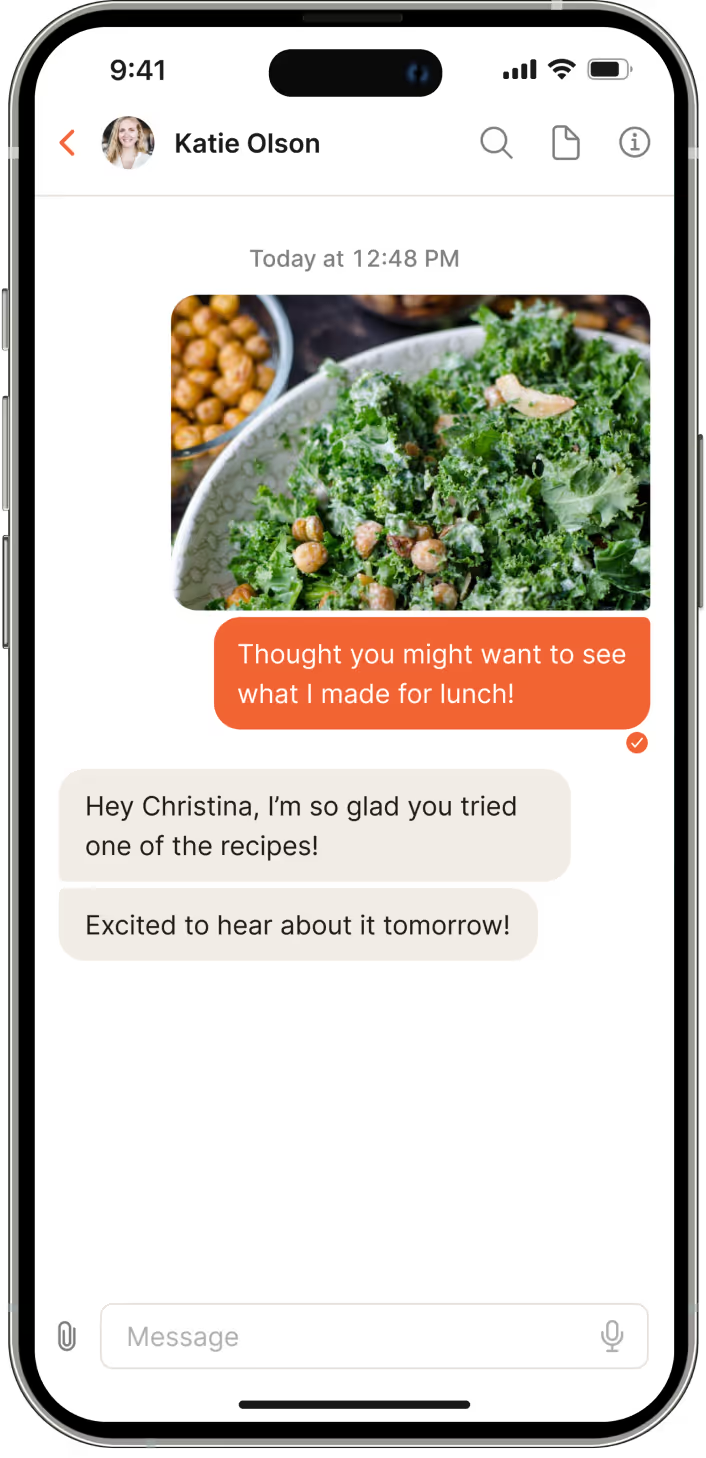Best Nutritionist Near Me for GERD & Acid Reflux
94% of Nourish patients pay $0 out of pocket!


Our team of dietitians can support all areas of your health
Our team of nutritionists are skilled in numerous specialties. Whether your needs revolve around sports, weight loss, a chronic illness, or navigating a pregnancy, our professionals are prepared to provide the right nutritional guidance.









Personalized nutrition planning
We offer virtual one-on-one sessions with dietitians to discuss preventative actions that can be taken to address your health concerns. We educate, assess lifestyle changes, help plan your nutrition, and support our clients toward long-lasting success using personalized nutrition counseling.
Convenient, virtual appointments
Receive the highest quality care wherever you are most comfortable. You get access to your dietitian virtually anytime, anywhere. No more driving to appointments. No more waiting around.
Avoiding future complications
The payoff you’ll see for adjusting your lifestyle with nutrition counseling will be tremendous for your health. You’re less likely to suffer from a heart condition, kidney failure, and other serious conditions with the proper discipline and determination that we help provide.
We’ve got answers.
Still deciding if we’re right for you? These frequently asked questions may help.

How can I find a <Name> dietitian who accepts my insurance?
Nourish has <Name> dietitians in-network with major insurers like Blue Cross Blue Shield, United Healthcare, Aetna and Cigna. 95% of Nourish patients pay $0 when using insurance.
Are video visits with a dietitian online for <Name> covered by insurance?
Check your coverage to see if Nourish accepts your insurance plan.
What to expect during a visit with a dietitian that specializes in <Name>?
During your first appointment with a dietitian, you can expect to review your medical history, eating habits, and lifestyle. You’ll get to know your dietitian and you’ll have the opportunity to ask them any questions you have.
How can I find an online video visit with a dietitian that can help with <Name>?
Nourish offers completely virtual appointments that can help address <Name>.
How can I book a nutrition appointment online for <Name>?
Nourish offers completely virtual nutrition appointments and is covered by insurance. You can find a dietitian that’s right for you and filter by condition.
How can I see a dietitian that can help with <Name>?
Nourish has dietitians that specialize in <Name> that can help. Nourish uses evidence-based, personalized nutrition therapy so you feel your best.
A registered dietitian can also help with the following related <Name> conditions:
How Can a Dietitian Help with Acid Reflux and GERD?
Managing acid reflux and Gastroesophageal Reflux Disease (GERD) involves making dietary adjustments to reduce symptoms. Here are some foods and beverages commonly known to trigger acid reflux and should be avoided or limited:
Personalized Dietary Recommendations
Based on this assessment, a dietitian can provide personalized dietary recommendations. They suggest modifications to avoid or reduce trigger foods and incorporate foods that are less likely to cause symptoms, such as non-citrus fruits, vegetables, lean proteins, and whole grains.
Portion control and meal timing are also addressed, recommending smaller, more frequent meals to avoid overloading the stomach and reducing the likelihood of reflux. Additionally, they might suggest elevating the head of the bed and avoiding meals close to bedtime.
Behavioral Strategies
Behavioral strategies are another critical aspect of a dietitian's support. They provide guidance on mindful eating practices, stress management techniques, and the importance of maintaining a healthy weight, as excess weight can exacerbate GERD symptoms.
Continuous monitoring and follow-up appointments ensure that the dietary plan is effective and allows for adjustments as needed. Through these comprehensive and personalized interventions, dietitians can significantly help in managing and reducing the symptoms of acid reflux and GERD.
Foods to Avoid with Acid Reflux and GERD
Managing acid reflux and Gastroesophageal Reflux Disease (GERD) involves making dietary adjustments to reduce symptoms. Here are some foods and beverages commonly known to trigger acid reflux and should be avoided or limited:
Acidic Foods
- Citrus Fruits: Oranges, lemons, limes, grapefruits, and their juices are highly acidic and can aggravate reflux.
- Tomatoes: Including tomato-based products like sauces, soups, and salsas.
Spicy Foods
- Spicy Peppers: Hot peppers, chili powder, and hot sauces can irritate the esophagus and trigger symptoms.
Fatty and Fried Foods
- Fried Foods: Deep-fried items like french fries, onion rings, and fried chicken.
- High-Fat Meats: Sausages, bacon, and fatty cuts of beef or pork.
- Full-Fat Dairy Products: Whole milk, butter, cream, and high-fat cheeses.
Caffeinated and Carbonated Beverages
- Coffee and Tea: Both caffeinated and decaffeinated coffee can trigger reflux; certain teas like black and green tea can also be problematic.
- Soda and Carbonated Drinks: Carbonation can cause bloating and increase pressure on the lower esophageal sphincter (LES).
Alcohol
- Beer, Wine, and Spirits: Alcohol can relax the LES, making it easier for stomach acid to back up into the esophagus.
Chocolate
- Chocolate: Contains both caffeine and theobromine, which can relax the LES and trigger reflux.
Mint
- Peppermint and Spearmint: These can relax the LES and worsen symptoms.
Onions and Garlic
- Raw Onions and Garlic: These can cause heartburn and are often triggers for many people.
Other Specific Foods
- Certain Fruits: Pineapple and other high-acid fruits can trigger reflux.
- Processed Snacks: Chips, cookies, and other processed snacks often contain ingredients that can trigger reflux.
Recommendations for Managing Symptoms
- Portion Control: Eating smaller, more frequent meals instead of large meals can help reduce pressure on the LES.
- Meal Timing: Avoid eating close to bedtime; try to have your last meal at least 2-3 hours before lying down.
- Hydration: Drink plenty of water throughout the day, but avoid large amounts during meals.
By avoiding or limiting these foods and beverages, individuals with acid reflux and GERD can better manage their symptoms and reduce the frequency and severity of reflux episodes.




%20Logo%20-%20vector69.com.svg)























.avif)
